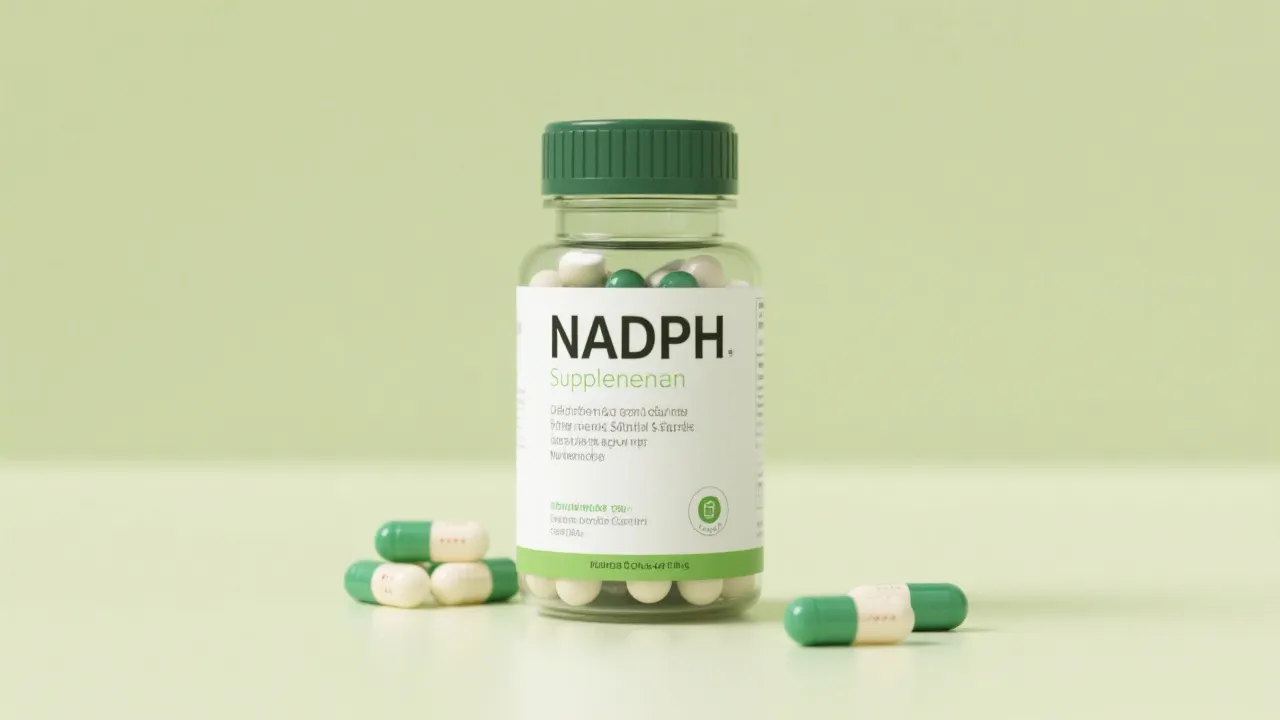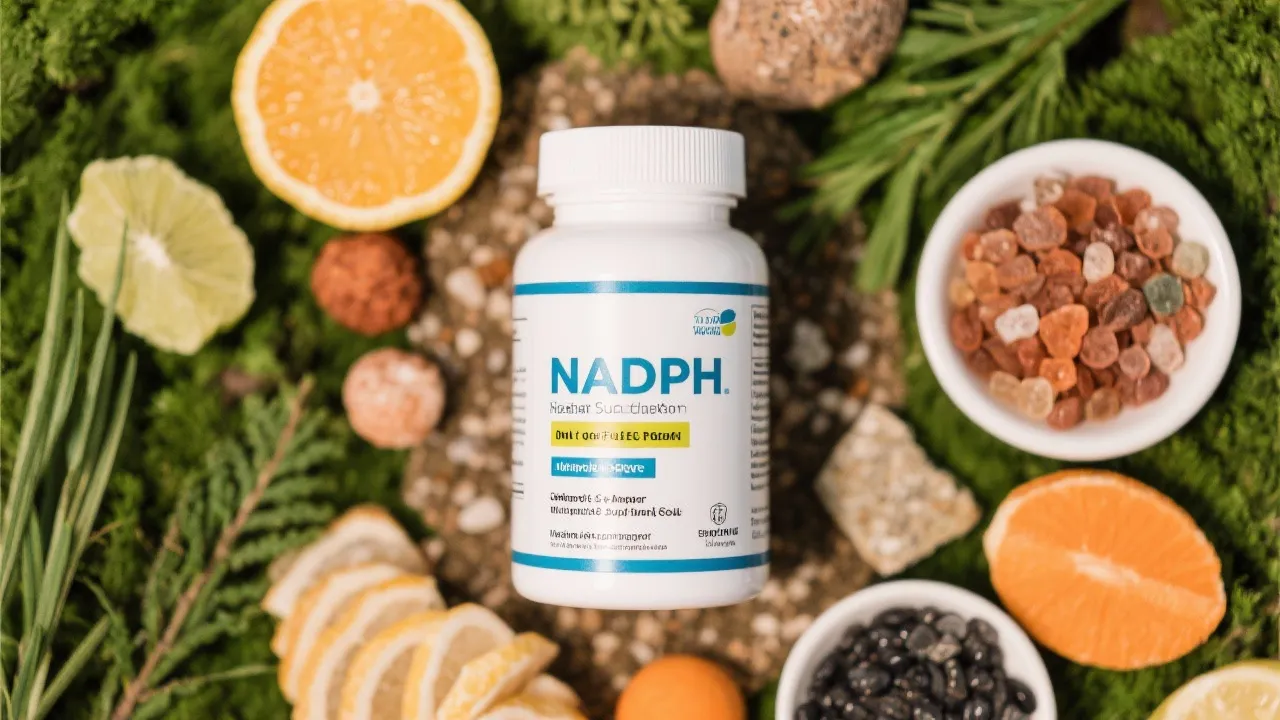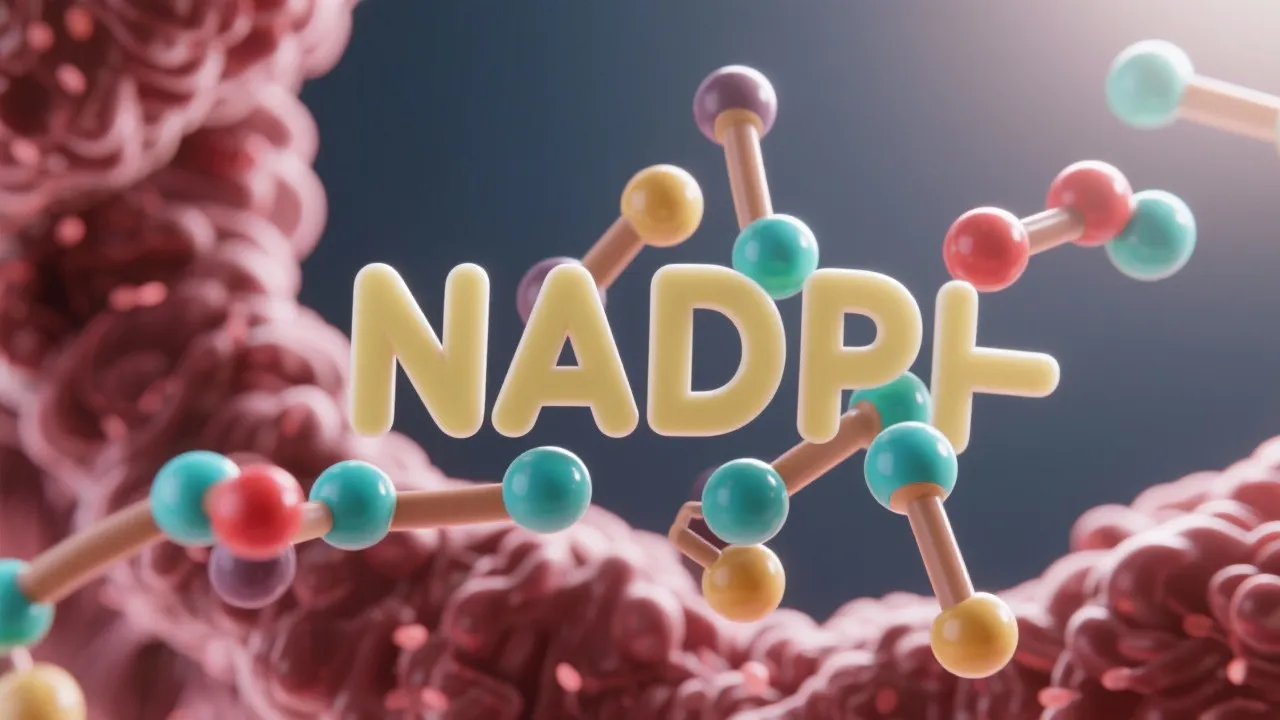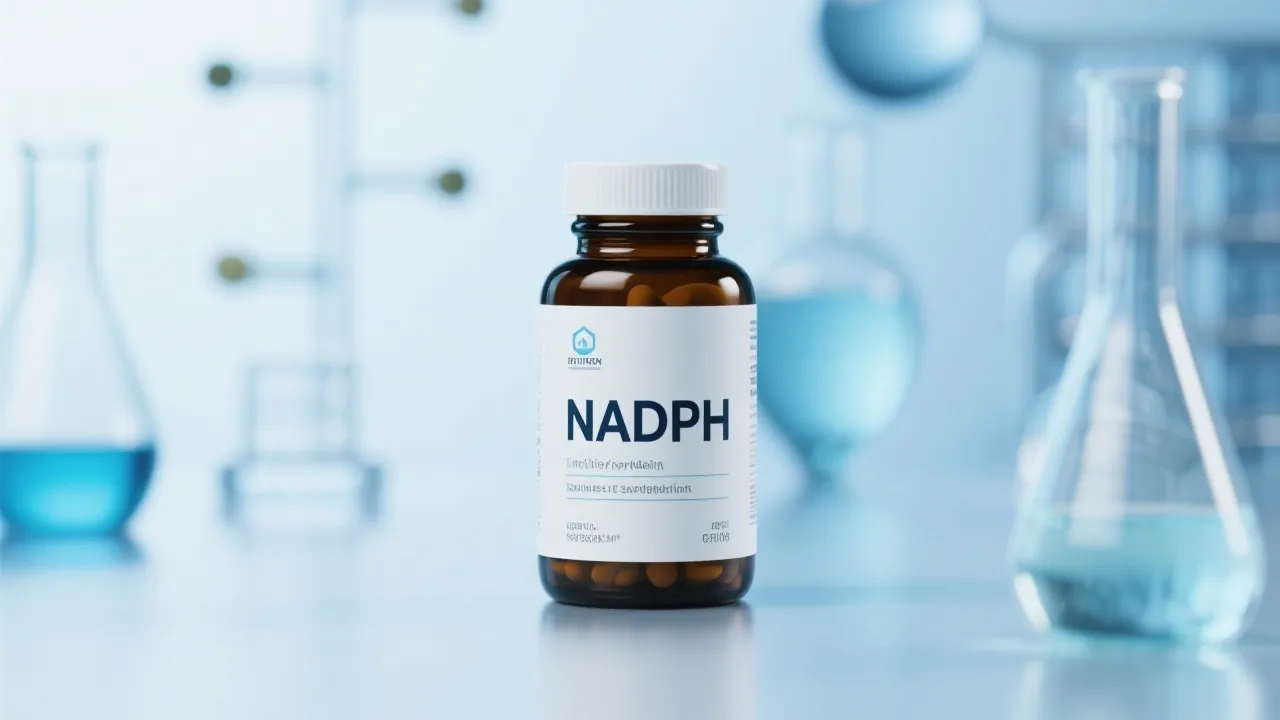Understanding NADPH Supplement Benefits
This article explores the potential benefits of NADPH supplements, a topic of interest in the realm of nutritional science and cellular health. NADPH, or Nicotinamide Adenine Dinucleotide Phosphate, functions primarily as a reducing agent in biochemical reactions, contributing to energy metabolism and detoxification processes within the body. This piece delves into the roles, purported benefits, and scientific insights surrounding this supplement.

Introduction to NADPH Supplements
NADPH, or Nicotinamide Adenine Dinucleotide Phosphate, plays a pivotal role in various biochemical reactions within the human body. Its primary function is acting as a reducing agent, contributing crucially to energy metabolism, biosynthetic reactions, and detoxification processes. Given its integral role in cellular functions, there is a growing interest in NADPH supplementation to potentially enhance health and vitality. The discovery of NADPH's functions in cellular processes has led researchers and health enthusiasts alike to explore the possibilities of using NADPH supplements to boost overall well-being.
Beyond merely enhancing energy and metabolic processes, NADPH supplements are being scrutinized for their potential effects on aging, disease resistance, and overall health maintenance. With the increasing global focus on preventative health measures and the holistic approach to healthcare, the exploration of NADPH supplements fits well into a broader paradigm of seeking natural and effective ways to improve health. This article delves deeper into the role of NADPH, its potential health benefits, the current scientific insights related to supplementation, and practical options available for those interested in exploring this intriguing supplement.
Understanding the Role of NADPH
NADPH is essential in anabolic reactions, which include the synthesis of lipids and nucleic acids. It also plays a significant role in protecting cells against oxidative stress by replenishing the supply of glutathione, the body's primary antioxidant. The significance of NADPH extends into vital biochemical pathways, including the pentose phosphate pathway, which generates ribose-5-phosphate and NADPH used in nucleotide synthesis and the creation of essential cellular building blocks.
Additionally, NADPH is involved in the regeneration of other antioxidants such as vitamin C and E, further emphasizing its importance in maintaining cellular health. This regeneration process is critical because antioxidants combat the damaging effects of reactive oxygen species (free radicals), which are produced by normal cellular metabolism as well as environmental exposures like pollution and UV radiation. By enabling the continual recycling of these vital antioxidants, NADPH helps mitigate cellular damage and supports longevity and overall vitality.
The Biochemistry of NADPH
To appreciate the role of NADPH fully, it is essential to understand its biochemical nature. NADPH is formed from the oxidation of NADH (Nicotinamide Adenine Dinucleotide) through the enzyme NADP+ (Nicotinamide Adenine Dinucleotide Phosphate), which is crucial for cellular redox reactions and biosynthetic pathways. The balance between NADN and NADPH is critical in the body, influencing not just energy metabolism but also lipid synthesis and various detoxification activities.
Moreover, NADPH's role extends to involvement in cytochrome P450 enzymes, which are essential for drug metabolism and the detoxification of harmful compounds. Therefore, supplementation with NADPH may also play a role in improving the body's capability to process medications and handle toxins efficiently.
Potential Health Benefits of NADPH Supplements
Proponents of NADPH supplements argue that they may aid in several health areas:
- Energy Metabolism: NADPH is paramount in energy production at the cellular level, which could help improve energy levels, particularly in individuals with metabolic disorders. Given that many metabolic disorders are characterized by inefficiencies in energy production, NADPH supplementation may provide the necessary support for those looking to regain their vitality.
- Antioxidant Defense: By supporting the production of glutathione, NADPH supplements may enhance the body's ability to mitigate oxidative stress and damage from affordable radicals. A solid antioxidant defense system is crucial for everyone, especially for the elderly or those with chronic conditions that may exacerbate oxidative stress.
- Immune Support: NADPH plays a significant role in the functioning of white blood cells, crucial components of the immune system, thereby potentially enhancing immune response. This is particularly relevant given the increasing focus on supporting immune health in modern society.
- Potential Anti-Aging Effects: As NADPH assists in repairing cellular damage caused by oxidative stress, supplements may also play a role in maintaining youthful cellular functions. The relationship between oxidative stress and aging has been a significant area of research, and NADPH may play a role in extending healthy life spans.
- Support in Chronic Conditions: Given its role in detoxification and antioxidant defense, NADPH supplementation may provide support for individuals with chronic conditions such as diabetes, cardiovascular diseases, or neurodegenerative disorders, where oxidative stress and metabolic imbalances are prevalent.
Scientific Insights into NADPH Supplementation
The scientific community is increasingly exploring the efficacy of NADPH supplements. Preliminary studies suggest improvements in cellular function and reduced risk of diseases linked to oxidative stress. Animal studies have provided substantial evidence indicating that enhanced levels of NADPH can lead to improved healing processes, elevated energy levels, and better outcomes in conditions associated with oxidative damage.
For instance, research published in various journals indicates that NADPH plays a critical role in providing the necessary reducing power for biosynthesis, particularly in conditions where the cellular demand for anabolic processes is high. In addition to enhanced energy metabolism, NADPH's role in antioxidant regeneration contributes to lowering oxidative stress exposures, which is linked to systemic inflammation and chronic disease processes.
However, it is essential to note that more comprehensive research and clinical trials are needed to irrefutably validate these claims. While the initial findings are promising, they necessitate further investigation into optimal dosages, potential side effects, and the long-term impact of supplementation on overall health. Researchers are keen to explore whether these benefits are sustained long-term and how they might vary across different populations, especially among those with particular health conditions.
Comparison Table: NADPH Supplement Sources and Purported Benefits
| Source | Benefits |
|---|---|
| Standardized Capsules | Easy dosing, convenient for regular use; often formulated for extended release, allowing for sustained effects throughout the day. |
| Liquid Drops | Faster absorption, suitable for those with digestive issues; often preferred for quick effect and may be easier to adjust dosages. |
| Powder Form | Can be mixed with drinks for flexible intake; provides versatility in incorporating into daily routines, such as smoothies or health shakes. |
| Transdermal Patches | Offers steady release of NADPH through the skin, potentially bypassing digestive issues entirely; appealing for those who prefer not to take oral supplements. |
| Injections | Used in clinical settings for immediate effects; typically administered by healthcare professionals for significant health concerns. |
FAQs
- What is NADPH used for in the body?
NADPH is primarily utilized for biosynthetic processes, detoxification of the body, and antioxidant regeneration. It is an essential cofactor that aids in various biochemical reactions that maintain cellular health and metabolic function. - Is NADPH safe to take as a supplement?
While generally considered safe, it is recommended to consult with a healthcare professional before starting any supplementation. Dosage, form, and pre-existing health conditions should be discussed to ensure safety and efficacy. - How does NADPH differ from NADH?
NADPH is a form of NAD (Nicotinamide Adenine Dinucleotide) that adds a phosphate group, crucial for anabolic reactions, whereas NADH is primarily involved in catabolic reactions, mainly energy production in the mitochondria. Understanding these differences is critical for targeted supplementation strategies. - Can NADPH supplements help with weight loss?
While NADPH itself is not a weight-loss supplement, the role of NADPH in metabolic pathways could theoretically support weight management efforts. More research is needed to understand its direct impact on weight loss. - How should NADPH supplements be taken for optimal results?
Depending on the form of supplement, individuals should follow the manufacturer's guidelines and may benefit from taking them with food to enhance absorption. Timing also might be relevant—some users prefer morning dosing to align with daily energy demands.
Conclusion
NADPH supplements represent a promising avenue for enhancing cellular health and vitality. While current scientific literature provides compelling insights into their potential benefits, further research is essential to fully understand the impact of supplementation. Individuals considering NADPH supplements should do so under the guidance of healthcare professionals to align with their specific health needs and conditions. In addition to supplementation, a balanced diet rich in antioxidants, regular exercise, and other healthy lifestyle choices can further support NADPH synthesis and overall health.
Future Perspectives on NADPH Research
As research continues to unfold regarding the multiple benefits and applications of NADPH, future studies will likely explore its role across various medical conditions and how it interacts with existing treatments. For instance, understanding how NADPH levels respond to specific dietary patterns, lifestyle adjustments, and environmental factors can provide deeper insights into its involvement in chronic diseases and aging. Researchers may focus on identifying potential biomarkers associated with NADPH efficiency, which could help tailor individualized approaches to supplementation.
Moreover, ongoing clinical trials are expected to examine the long-term health outcomes associated with NADPH supplementation, including its safety profile and possible interactions with medications. The exploration of novel delivery methods for NADPH, such as liposomal formulations or nano-encapsulation, may yield products that enhance bioavailability and efficacy. As consumers become more health-conscious, innovative solutions and products in the NADPH supplement market may emerge, signaling substantial growth opportunities.
Incorporating NADPH into Daily Life
For those intrigued by the potential benefits of NADPH, incorporating its supplementation into daily routines can be done thoughtfully. Beyond supplements, individuals can explore nutrition sources that promote NADPH production, such as foods rich in B vitamins, including niacin and riboflavin, as well as those high in antioxidants. Additionally, engaging in regular physical activity not only contributes to overall energy levels but may also improve the body’s ability to maintain optimal NADPH levels.
Mindful consideration of stress management practices, such as mindfulness, meditation, or yoga, can complement supplementation efforts by reducing oxidative stress and thereby creating a supportive environment for NADPH's cellular functions. Establishing a holistic health routine that includes both NADPH supplementation and lifestyle modifications may further enhance the benefits of regular intake.
Final Thoughts
NADPH is emerging as a vital player in health and wellness, with its comprehensive involvement in metabolic, antioxidant, and biosynthetic pathways. While ongoing research is essential to validate its expanded role and effectiveness, the current insights suggest that NADPH supplements, when coupled with a healthy lifestyle, may offer a significant advantage for those looking to enhance their energy, immune response, and overall cellular health. With proper guidance and informed choices, NADPH supplementation could very well be a beneficial addition to the toolkit of modern health strategies.




